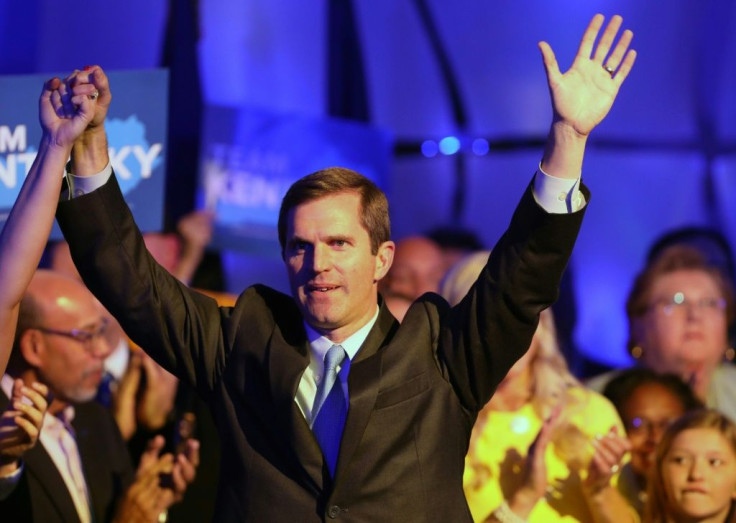Trump Immigration Policy In Trouble? Kentucky Governor Says State Will Accept Refugees, Despite Trump Request To Stop

KEY POINTS
- A new executive order signed by President Trump empowers state governments to decline refugees
- Gov. Andy Beshear, D-Ky., informed the Trump administration last week that his state will continue to accept refugees
- So far, no governors have pulled their states out of the refugee resettlement program, but around a dozen GOP governors have yet to make a decision
Newly elected Kentucky Gov. Andy Beshear has informed the Trump administration the state will continue to welcome refugees, despite an executive order that allows states to turn refugees away.
“Kentucky has welcomed refugees for well over three decades,” he wrote in his letter to Secretary of State Mike Pompeo last week. “Refugees in Louisville, Lexington, Bowling Green, Owensboro and other locales have contributed to the workforce and economic development of our state.”
In September, President Trump issued an executive order that empowered state and local governments to refuse to settle refugees. Beshear, who narrowly won the governor's race in November, joins numerous other Democratic governors who have maintained that their states will continue to resettle refugees. Gov. Kate Brown, D-Ore., affirmed her own state's continued committment to refugee resettlement in October:
Resettlement is a lifeline our country provides to the world’s most vulnerable refugees. The Trump admin will soon require states to opt IN to welcoming refugees, their latest attack against immigrant & refugee communities. These are not the values on which our country was built. pic.twitter.com/ImoJoIiJiH
— Governor Kate Brown (@OregonGovBrown) October 21, 2019
Pennsylvania Democratic Gov. Tom Wolf made a similar declaration that month, saying his state will continue to participate in taking refugees.
“To reject refugees outright emboldens the message of those who seek to inspire hatred by saying that we, as Americans, do not have compassion or care for specific groups of people in the world facing persecution or worse,” Wolf wrote to Pompeo.
The U.S. will admit a maximum of 18,000 refugees in the 2020 fiscal year, a reduction from a cap of 30,000 for the previous fiscal year. The new ceiling, set by the Trump administration, represents the lowest number of refugees to be settled in a year since 1980, the year the refugee resettlement program began.
While a number of Democratic governors have affirmed they will continue their participation in the nation's refugee program, some governors in Trump's own party have yet to make a decision. The Associated Press noted about a dozen "Republican governors have stayed silent" on their positions but must make a decision by Jan. 21 to secure the funding needed to place refugees.
Despite the indecision, none has flatly refused refugees yet. Republican Gov. Bill Lee of Tennessee cited his Christian faith in deciding to continue to accept refugees.
“My commitment to these ideals is based on my faith, personally visiting refugee camps on multiple continents, and my years of experience ministering to refugees here in Tennessee,” he wrote in his consent letter.
© Copyright IBTimes 2024. All rights reserved.





















